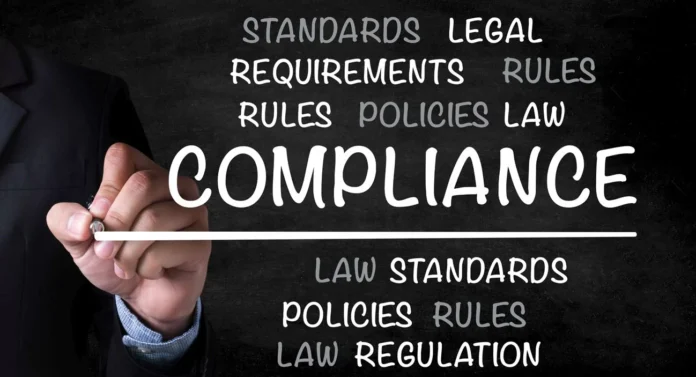In the dynamic and complex landscape of business operations, legal compliance stands as a cornerstone of sustainable growth and risk mitigation. From startups to multinational corporations, adhering to laws and regulations is not just a legal requirement but a fundamental aspect of corporate governance. In this article, we delve into the importance of legal compliance, its significance across industries, and strategies for ensuring regulatory adherence.
Understanding Legal Compliance
Legal compliance refers to the process of ensuring that an organization abides by the laws, regulations, and standards relevant to its operations, products, and services. These laws and regulations can vary widely depending on factors such as industry, location, and the nature of the business. Non-compliance can result in severe consequences, including legal penalties, reputational damage, and operational disruptions.
Importance of Legal Compliance
Risk Mitigation
Legal compliance helps mitigate various risks that businesses face, including financial, legal, and reputational risks. By adhering to applicable laws and regulations, organizations can avoid costly fines, lawsuits, and other legal consequences that may arise from non-compliance.
Reputation Management
Maintaining legal compliance enhances a company’s reputation among stakeholders, including customers, investors, and regulatory authorities. A reputation for ethical conduct and regulatory adherence can bolster trust and confidence in the organization, leading to greater credibility and competitiveness in the market.
Operational Efficiency
Compliance with laws and regulations often entails implementing robust processes and controls within the organization. These processes not only ensure legal adherence but also promote operational efficiency, transparency, and accountability throughout the business operations.
Competitive Advantage
Legal compliance can serve as a competitive differentiator for businesses, especially in industries where regulatory scrutiny is high. Organizations that prioritize compliance demonstrate a commitment to integrity and ethical conduct, which can attract customers, investors, and business partners seeking trustworthy and reliable partners.
Key Areas of Legal Compliance
Legal compliance encompasses various areas, each requiring careful attention and diligence to ensure adherence. Some key areas include:
Regulatory Compliance
This involves complying with laws and regulations specific to the industry in which the organization operates. Examples include financial regulations, environmental laws, data protection regulations, and consumer protection laws.
Employment Law Compliance
Employment law governs the relationship between employers and employees and encompasses areas such as wages, working hours, workplace safety, discrimination, and harassment. Adhering to employment laws is crucial for fostering a fair and safe work environment.
Contractual Compliance
Organizations must comply with the terms and conditions outlined in contracts entered into with customers, suppliers, partners, and other stakeholders. Failure to fulfil contractual obligations can lead to legal disputes and damage business relationships.
Data Protection and Privacy
With the increasing digitization of business operations, data protection and privacy have become critical concerns. Compliance with data protection regulations, such as the General Data Protection Regulation (GDPR) and the California Consumer Privacy Act (CCPA), is essential for safeguarding sensitive information and maintaining customer trust.
Strategies for Ensuring Legal Compliance
Conduct Regular Compliance Audits
Regular audits help identify areas of non-compliance and gaps in existing processes and controls. Conducting comprehensive assessments enables organizations to proactively address compliance issues and implement corrective measures to mitigate risks.
Stay Informed About Regulatory Changes
Laws and regulations are subject to change, requiring organizations to stay abreast of the latest developments relevant to their industry and jurisdiction. Subscribing to regulatory updates, participating in industry associations, and engaging legal counsel can help organizations stay informed and adapt to regulatory changes promptly.
Implement Compliance Training
Training employees on relevant laws, regulations, and company policies is essential for fostering a culture of compliance within the organization. Regular training sessions help employees understand their legal obligations, recognize compliance risks, and adhere to established protocols and procedures.
Establish Clear Policies and Procedures
Clear and well-defined policies and procedures guide employees on expected conduct and compliance requirements. Documenting policies related to areas such as ethics, data security, and conflict of interest ensures consistency and accountability across the organization.
Foster a Culture of Compliance
Promoting a culture of compliance starts at the top, with senior leadership setting the tone for ethical behaviour and regulatory adherence. Encouraging open communication, rewarding ethical conduct, and addressing compliance concerns promptly fosters a culture where compliance is prioritized and valued by all employees.
Conclusion
Legal compliance is a fundamental aspect of corporate governance and risk management, essential for maintaining the integrity, reputation, and sustainability of businesses. By prioritizing legal compliance and implementing robust compliance measures, organizations can navigate regulatory complexities, mitigate risks, and build trust with stakeholders. Investing in legal not only protects businesses from legal and financial liabilities but also positions them for long-term success and growth in an increasingly regulated business environment.




